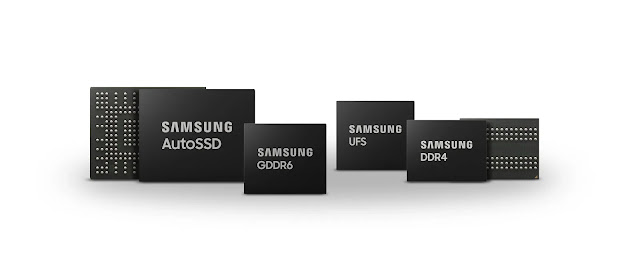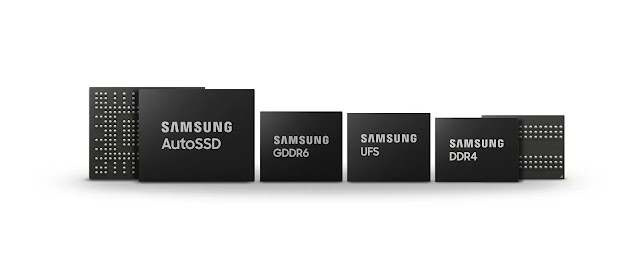Samsung Electronics, a global innovator in advanced memory technology, today revealed a comprehensive array of sophisticated automotive memory solutions aimed for next-generation self-driving cars.
The need for high-capacity, high-performance graphics SSD and DRAM has been pushed by upgraded features of infotainment systems such as high-definition maps, video streaming, and 3D games, as well as the rising usage of autonomous driving systems. in the automotive industry. In 2017, Samsung was the first in the industry to introduce UFS solutions for automotive applications. Today, the company is well-positioned to provide a complete memory solution with the new automotive SSD and GDDR6 DRAM.
Samsung’s 256 GB BGA SSD controller and firmware are developed in-house for optimized performance, delivering a sequential read speed of 2100 megabytes per second (MB / s) and a sequential write speed of 300 MB / s, which are respectively seven and twice as fast as today’s eMMC. Additionally, 2GB GDDR6 DRAM delivers data rates of up to 14 gigabits per second (Gbps) per pin. Such exceptional speed and bandwidth will support the complex processing of various multimedia applications and large amounts of autonomous driving data, contributing to a safer, more dynamic and more convenient driving experience.
In addition, Samsung’s new automotive solutions meet the AECQ100 qualification, the global standard for automotive reliability, which enables them to operate stably in extreme temperatures ranging from 40 ° C to + 105 ° C, which is a requirement. particularly crucial for automotive semiconductors. Recently, the implementation of sensors in autonomous vehicles to continuously monitor their surroundings is on the rise, and high-speed processing to interpret and predict this data for safer driving is becoming paramount.
By introducing automotive memory solutions previously supported by AI servers and accelerators, Samsung is helping to pave the way for safer autonomous driving.




